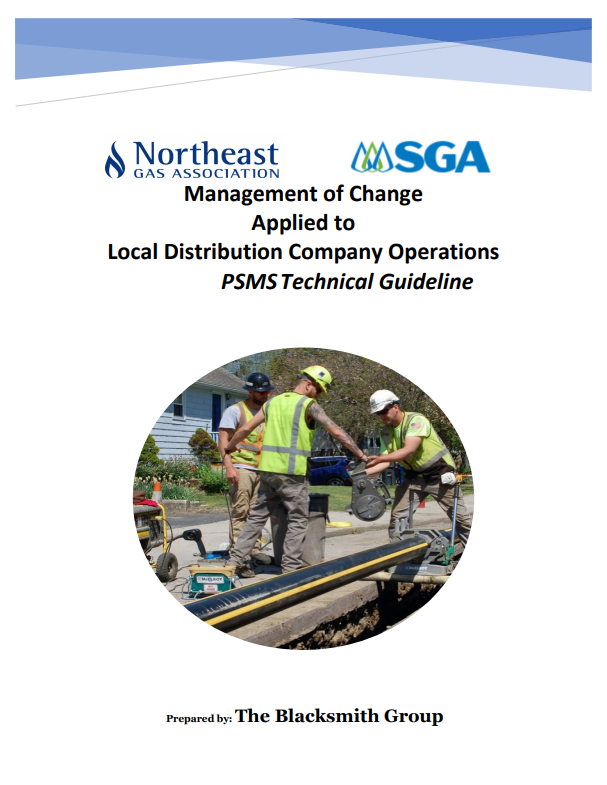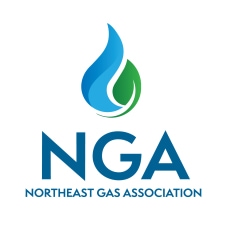PSMS Lessons Learned - July 30 - Management of Change
July 2025 PSMS Lessons Learned
Management of Change – A Vital Component to Pipeline Safety Management
Communicating procedural changes is a vital component of the Management of Change (MOC) process within the framework of API Recommended Practice (RP) 1173. API RP 1173 provides a structured approach to managing pipeline safety, emphasizing a Plan-Do-Check-Act (PDCA) cycle to identify, manage, and mitigate risks while promoting continuous improvement. The MOC process, specifically addressed in Section 8.4 of API RP 1173, ensures that changes, whether technical, physical, procedural, or organizational—are systematically managed to maintain safety and operational integrity.
The NGA PSMS Collaborative developed a comprehensive MOC Technical Guideline to help organizations better understand the safety value and application of MOC through sharing of leading practices.

Description of Event:
While prepping for a main connection, a blowdown-and-recovery operation resulted in an unplanned supply interruption due to an installation error related to an upstream main valve. The valve had presented that it was in the open position, but a dust cap had been left on the valve when it was installed decades ag,o which precluded assessment of actual positioning. During the blowdown and recovery operation, there was a rapid loss in line pressure, which led to an unplanned supply interruption of seventeen customers.
Key Causal Factors/Root Causes:
Causal Factor: Policy: “Blowdown and Recovery of High-pressure Mains Prior to Stop off” - Procedures may not have been effectively disseminated to employees upon its effective date. The crew exceeded the maximum allowable pressure drops prescribed in the policy.
Key Corrective Actions:
- Communicate Standard (Blowdown and Recovery Procedure) to all Regional Gas Field Operations (GFO) employees.
- Communicate with Learning & Development (L&D) to confirm if the Blowdown & Recovery procedure is covered in Lead Mechanic School per Procedure. If not, work with L&D to employ Blowdown & Recovery training.
- Enhanced walk the job down reviews incorporated in pre-job briefs.
Key Lessons Learned:
The lab report showed that this valve has never been operational since its installation decades ago. While this is an unusual occurrence, monitoring of gauges and not exceeding the calculated allowable pressure drop / guidelines could have reduced the chances of customer gas service outages while performing planned live-gas work.
• If pressure drops below allowable minimums, call Gas Control to confirm the next steps (three-way communications).
• Verify that pressure gauges are routinely inspected and replaced as needed.
Importance of Communicating Procedural Changes in MOC: The MOC process in API RP 1173 is designed to prevent incidents by ensuring that changes to pipeline operations do not introduce new risks or exacerbate existing ones. Procedural changes, such as updates to operating protocols, maintenance schedules, or safety procedures, must be clearly communicated to all relevant stakeholders to ensure safe implementation and compliance. Effective communication prevents misunderstandings, ensures proper execution, and fosters a safety culture, which is a core objective of API RP 1173.
Remember effective communication MS Collaborative Members through the PSMS Resource Center at ngapsms.com.

